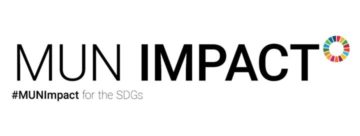Victoria Basma is the Policy Development Officer for the WISE campaign (Women into Science and Engineering), former education consultant and teacher. She currently works with entrepreneurs to create a positive impact within education systems and pushes towards building sustainable learning ecosystems for students.
During the second session of the Global Summit, Basma presented to a group of delegates from the MUN program as she explained her passion for creating learning ecosystems and working towards social impact. She began by mentioning current times in our world for example, the Black Lives Matter movement, and talked about how demonstrations and protests around the world have led to some major changes thus far. She believes that protesting for social justice and peace, allows everyone to become politically active and voice their opinions. However, Basma also stated that for long term, protests are an unsustainable way to create social change due to the fact that it ultimately limits the impact. This is because iit closes people’s minds to collaboration since they are only focused on very specific objectives. She talked about how coalition could benefit both diplomats and policy makers while sustaining groups who are advocating for change, because it completely removes individual groups at the core and eventually creates a web of collaboration for direct democracy.
In the next phase of Basma’s presentation, she described what exactly a learning ecosystem is and how to create one. She started off by asking her audience the question, “What makes your school a learning ecosystem?”. A few responses described how schools build a good connection between students and teachers, how it implements diversity into an everyday setting, and how it helps create collaboration with outside organizations and programs like MUN. Basma then went on to consider that having different avenues of learning and allowing students to “co-create” leads to a healthier environment for a learning ecosystem. She stated that it is important for each member to feel as though they have a “say” in a situation and that is why open discussion is necessary in order to create a good learning ecosystem. Basma believes that collective learning along with individual learning is essential because it allows for a group to work towards a common goal and practice team building, but also helps students to individually grow and improve their skills.
Lastly, Basma discussed with the audience who makes up learning ecosystems and what it can lead to. She listed the groups of people who exist within the learning community as students, their families, research centers, teachers, administrators, edtech entrepreneurs, and local communities. Each of these groups has some kind of impact on what kind of environment the education system is and how it will eventually affect the students. She then talked about the different factors that create a “good” learning ecosystem. She stressed the importance of student dialogues, teacher training, and diversity amongst students (ethnicity, race, economic status, etc.) and in resources. She stated that “space” for interaction and collaboration allow students to connect. However, that definition of space is changing with the Covid-19 pandemic, as students are no longer able to meet face to face in classrooms.
Overall, Victoria Basma put together a well-organized, informative, and interesting presentation for her audience, and helped create a better understanding of what a learning ecosystem is and how it can benefit many different groups. She engaged the delegates by allowing them to speak on personal experiences and explore the importance of collaboration and team building. The students who attended her session seemed to enjoy her presentation as they actively listened and asked thoughtful questions.
_
By Audrey Pinson
